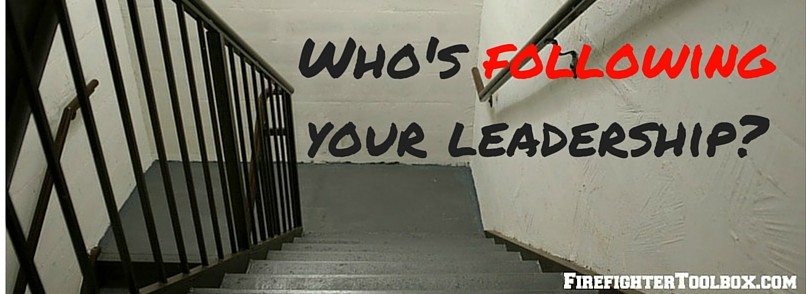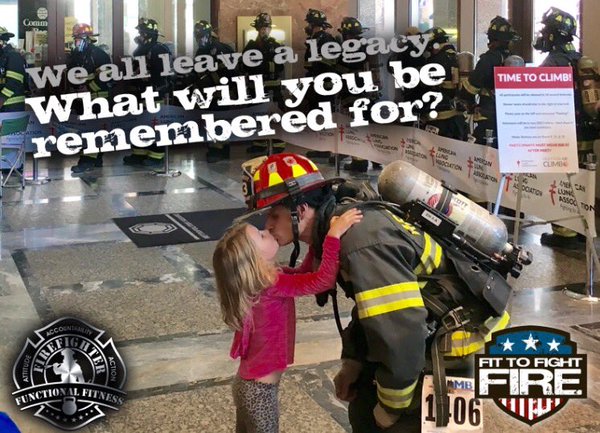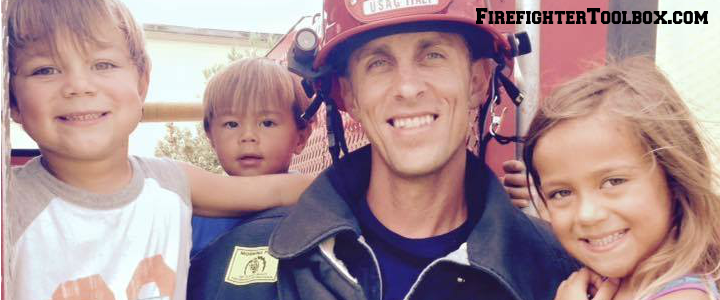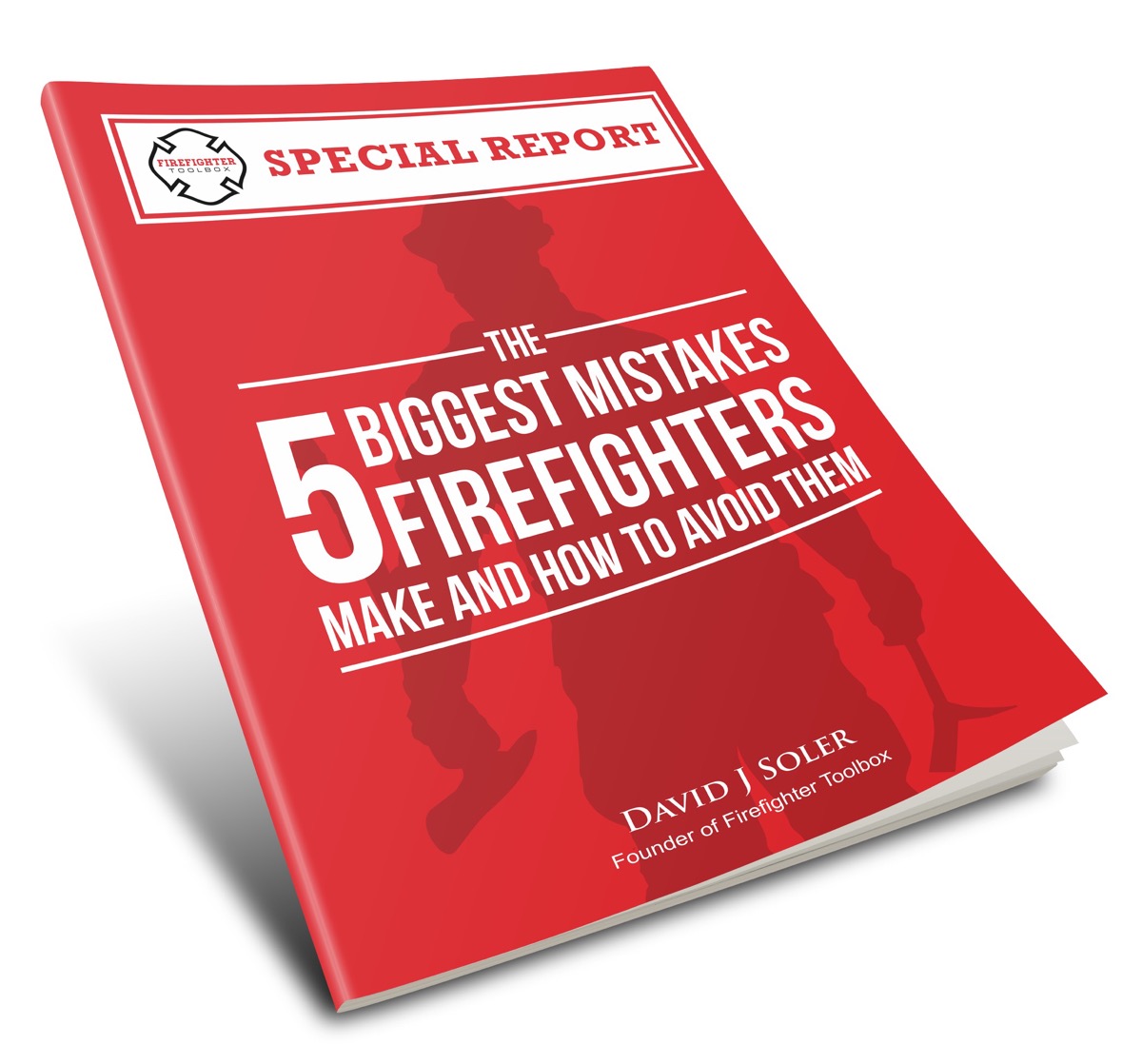Rescuing Our Own Family

Reminding ourselves of the importance of family in the fire service
Somewhere around the equivalent of the 30th floor during our local 9/11 memorial stair climb, the burning sensation in my legs was replaced with the thought—you go…we go! I know you are picturing that climatic scene with Lt. Steven McCaffrey from the movie Backdraft, but I wasn’t. Rather, I was noticing just how many husbands, wives, and children had crowded the stairwells to climb with, and support the efforts of their loved ones. Indeed, it was truly a “if you are going, then we are going with you” moment.
Family is a word that I hear used a lot in the fire service, but perhaps not enough.

Daughter Kissing Dad. -Courtesy Jim Moss – FirefighterFunctionalFitness.com & John Spera, Fit To Fight Fire
We recognize that in our profession, it transcends blood lines and last names. We hold it in high esteem, and tout it as a fellowship that we celebrate with our new members, and come to rely on in dark times, whether professional or personal. When we join the fire service, as paid or volunteer, we begin introducing our families at home, to a new work family. But, I have started realizing that I am developing a bad habit of trying to keep the two families separate.
I wish I had thought to invite my family to the stair climb. So why didn’t I? I think sometimes I love this job so much, that I act selfishly to make sure I get to enjoy it. I take for granted that when I’m traveling to conferences, or sign up for an extra overtime slot, I’m shifting the lion’s share of my responsibilities at home to my wife.
Avoid the tendency to compartmentalize
I don’t tend to share enough with my wife the stress of leading others through tough times professionally and personally, the conflict of feeling pulled in too many directions, and certainly the calls where people die despite our best efforts.
I vividly remember the single vehicle rollover that killed two college kids on the eve of Father’s Day two years ago. I spent the night on the phone with the third passenger’s family, assuring his mother he received only a broken sternum coupled with some minor injuries. I pleaded ignorance when she asked about the fate of his childhood friends, knowing they still lay on-scene dead. I knew it was bad when the on-scene report from a seasoned officer was reduced to only “Oh my…”.
I know when I arrived home the next day, I held my kids a little tighter and longer than normal. I don’t know if I’ve ever shared this story with my wife. I know she is strong enough to run the family while I’m at work, so why did I think she wasn’t strong enough to hear about what is causing my burnout at work? Unfortunately, it took having to see a marriage counselor for this to become obvious to me.
Scary isn’t running into a building on fire. Scary is hearing my wife suggest that maybe we “need space”….
How to create support from both our personal and professional families

Courtesy Jeremy Rhode – Firefighter Toolbox
If Resiliency is improving how well we are able to respond to life’s curve balls, then the third lesson in our conversation is to realize that we need the support of both our professional and personal families, not just one or the other. Having our two families connect and interact as much as possible, enhances our careers, and in turn increases the resiliency of both families. Having my family come by the fire house, attend the stair climb, and meet the families of other firefighters I work with, all serve to strengthen our relationships and reinforce our mission. It helps them to understand my passion, and why I could possibly sacrifice ten nights away from them each month to do it.
Answering the mayday….before the mayday
We teach our officers and aspiring leadership that a sudden decrease in performance is a red flag for a personal issue at home. So how much time do we spend training current and future leaders on how to engage someone showing the warning signs of depression, substance abuse, or mental health illness? In your department, where do you tactically put the emphasis on rescuing our own—answering the mayday…before the mayday. Kudos to those departments who are developing PTSD awareness, coupled with employee assistance programs.
It’s easy in the fire service to solve other people’s problems. The true test of leadership is to have to come home and face life’s problems waiting for you there. In that stairwell approaching the 31st floor, I pictured my little girls watching me leave for work and calling out, “you go…we go”. In that moment, I realized that even when I try to isolate my family from my job, I take them everywhere, even places I never intended to.
Have you ever found yourself irritable and cranky with friends and loved ones following a long night of calls at the station? Have you ever brought a fight you were having at home with a loved one, right into the firehouse and ended up straining work relationships? Have you ever felt the need to demonstrate empathy because someone’s crisis resembles one of our own? Our personal and professional lives have an uncanny way of blending together as we progress throughout our careers.
We fool ourselves into thinking we should and are capable of separating our two families—an attempt to isolate each from the bad things that happen to us. We take for granted how scary it is to our loved ones. Especially, when we leave for work. Make sure as you grow in your career, you don’t grow apart from either of your families. The reality is that by connecting, and properly engaging both families in our careers, we increase everyone’s awareness and resiliency. See you in the comments section.
Leadership Resiliency and Recovery in the Fire Service: Rescuing our own family– Part 2 of 7





